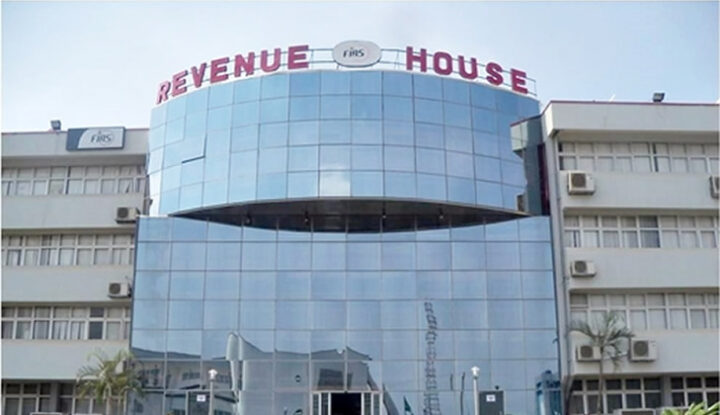The Federal Government, in collaboration with the Federal Inland Revenue Service (FIRS), has taken its ongoing tax sensitisation programme to Ibadan, Oyo State, as part of a national effort to enhance awareness of tax responsibilities, reforms, and benefits among Nigerians—especially those in the informal sector.
The initiative, which also featured key support from the Presidential Office of Community Engagement for the Southwest, focused on enlightening traders, artisans, commercial drivers, and other grassroots operators on how tax reforms directly impact their livelihoods and businesses.

During the sensitisation drive, government officials engaged with various community members in markets and public places like Ojoo and Mokola. They distributed informational materials in local languages and held discussions explaining how the tax system has been restructured to support low-income earners. Emphasis was placed on how the new tax framework offers exemptions for those earning below certain thresholds, as well as simplified procedures for registration and remittance.
Leading the delegation was Moremi Ojudu, the Senior Special Assistant to the President on Community Engagement for the Southwest. She noted that the campaign was part of efforts under the Renewed Hope Agenda to bridge the gap between federal policies and local understanding. According to her, many Nigerians often see taxation as a burden due to a lack of information. She stressed the importance of making taxation relatable and transparent, especially among the underrepresented population in the informal economy.
Market women, keke riders, and local artisans welcomed the opportunity to engage with FIRS officials and tax experts directly. For many, it was the first time hearing about government tax incentives for micro-enterprises and small businesses. Participants voiced their concerns and misconceptions, particularly about multiple taxation, excessive levies, and the lack of visible benefits of paying taxes. The officials addressed these concerns and reassured them that recent reforms are tailored to ensure fairness and inclusivity.
Also present at the event were FIRS regional representatives, officials from the Oyo State Internal Revenue Service, and leaders from local trade unions. They jointly emphasised that government revenue collected through taxation helps fund public services such as healthcare, education, security, and infrastructure. The Oyo State tax authority further explained how internally generated revenue (IGR) in the state has improved substantially in the past few years due to better tax administration and increased voluntary compliance.
Governor Seyi Makinde of Oyo State had earlier expressed support for such grassroots outreach efforts, especially those targeting informal-sector players. He reiterated his administration’s commitment to ensuring that the tax system remains equitable and non-oppressive. He also called for more humane strategies to incorporate small-scale entrepreneurs into the formal tax net, saying that punitive measures would only discourage compliance.
FIRS leadership echoed the governor’s stance, noting that the purpose of the sensitisation drive is not enforcement but education. They affirmed that the federal government’s goal is to build trust between tax authorities and citizens through honest dialogue, clear communication, and visible developmental outcomes tied to tax revenues.
The awareness programme is one of many that will be rolled out across different regions, with each one tailored to address the unique tax challenges and cultural nuances of the host community. In Ibadan, the team used audio messages in English, Yoruba, and Pidgin, and incorporated culturally relevant messaging to resonate with residents.
The outreach also highlighted new digital tax registration tools that make it easier for individuals and businesses to sign up and manage their tax obligations without having to visit a government office physically. The FIRS explained that such tools were introduced to remove barriers to access and reduce room for extortion or corruption within the system.
A critical outcome of the campaign was the feedback collected from participants. Many asked for follow-up training on tax literacy and small business development. Some suggested the inclusion of local leaders and youth ambassadors to further spread tax knowledge in their communities. FIRS officials pledged to work with community groups and local governments to expand the reach of the initiative and make tax education a continuous conversation.
In a closing remark, Mrs. Ojudu thanked the people of Ibadan for their hospitality and active participation. She stressed that understanding tax is a civic duty that empowers citizens, improves accountability, and helps government deliver on its promises. She added that the programme would soon move to other cities and states in the region.
The sensitisation campaign reflects a renewed commitment by the federal government to address long-standing gaps in tax education and compliance. As Nigeria continues to seek ways to diversify its revenue base and reduce dependence on oil, such initiatives are expected to play a crucial role in fostering a tax-paying culture built on trust, transparency, and shared responsibility.
Support InfoStride News' Credible Journalism: Only credible journalism can guarantee a fair, accountable and transparent society, including democracy and government. It involves a lot of efforts and money. We need your support. Click here to Donate
